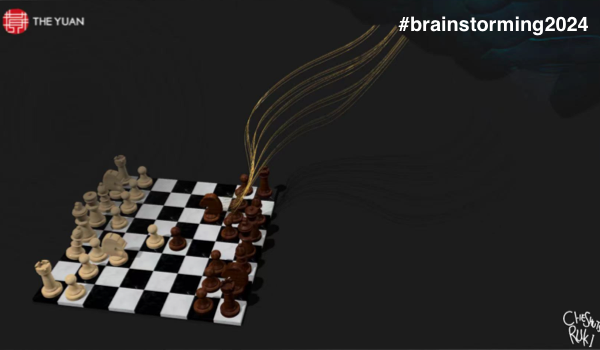


DENVER, COLORADO -
"Intelligence is the ability to adapt to change."
- Stephen Hawking
Humans associate intelligence with their own brain, which they often perceive as a sophisticated system capable of planning, perception, and decision-making. Artificial intelligence (AI) describes the automation of complex tasks typically attributed to intelligence, while machine learning (ML) is a set of methods used to achieve an AI approach. AI research aims to create machines that emulate human intelligence and Turing-powerful systems.
Many subdivisions falling under the rubric of AI are patterned on the intricate relationships within the microanatomy of biological neural networks and so, while the brain has acted as a surrogate for the inception of AI, the relationship between the two is now symbiotic. The brain is used as a tool in neuroscience, transforming humans’ understanding of it and its complexity.
To delve into the realm of AI and brain science, one must first acknowledge the role of cognitive science. Cognitive scientists' perspective on brain function has been instrumental in developing AI. Convolutional neural networks are a computational cognitive model used to guide new reasoning paradigms of intellectual abilities, including language, memory, and perception. A core promise of AI is that it allows access to the collective intelligence of a multitude of experts in any field - it does not wholly rely on the wisdom of a single one. This is why cognitive science is so important when discussing AI and neuroscience.
AI is spurring exciting advances in neuroscience, with the following a few key examples:
- Advancing neuroscience in different ways, one of which uses deep learning (DL) - an ML framework inspired by the
The content herein is subject to copyright by The Yuan. All rights reserved. The content of the services is owned or licensed to The Yuan. Such content from The Yuan may be shared and reprinted but must clearly identify The Yuan as its original source. Content from a third-party copyright holder identified in the copyright notice contained in such third party’s content appearing in The Yuan must likewise be clearly labeled as such.
 Continue with Linkedin
Continue with Linkedin
 Continue with Google
Continue with Google









 1720 views
1720 views








